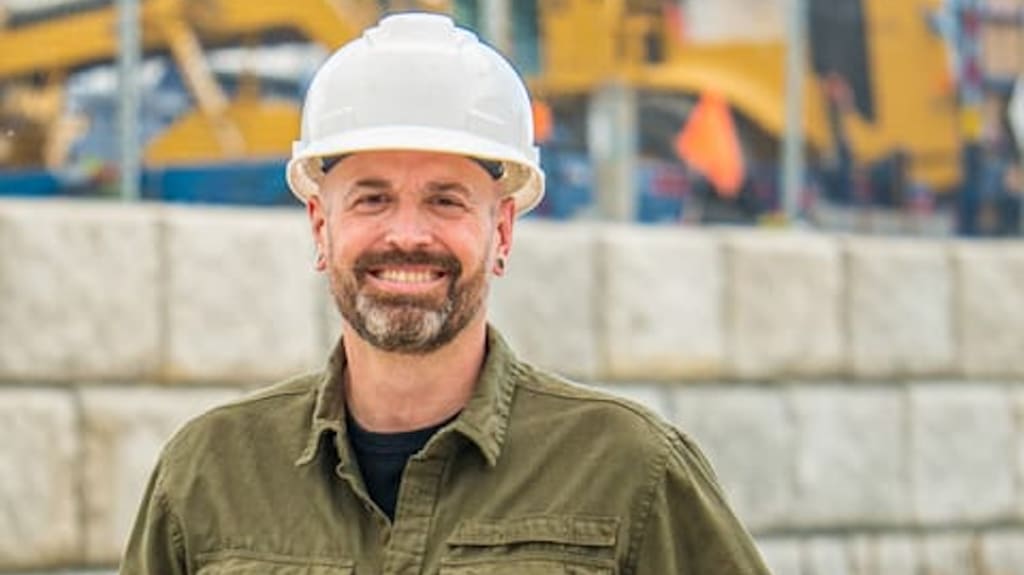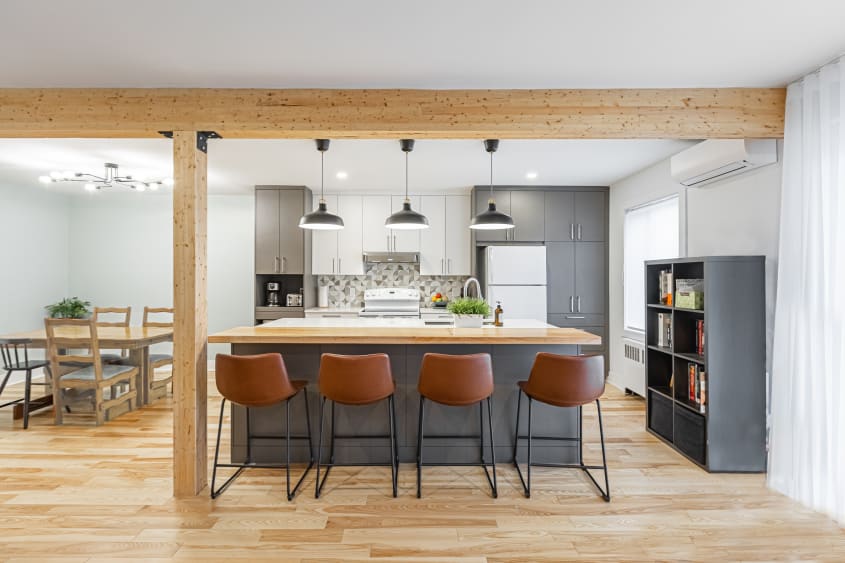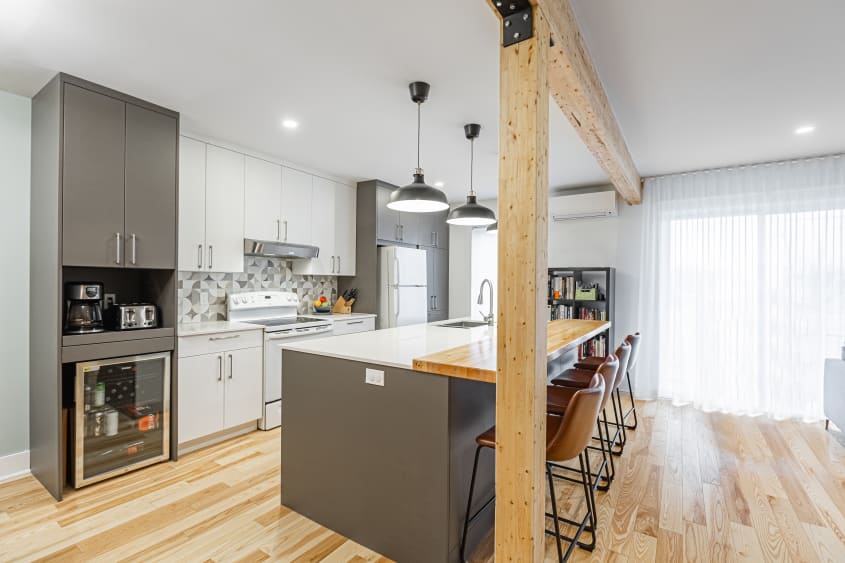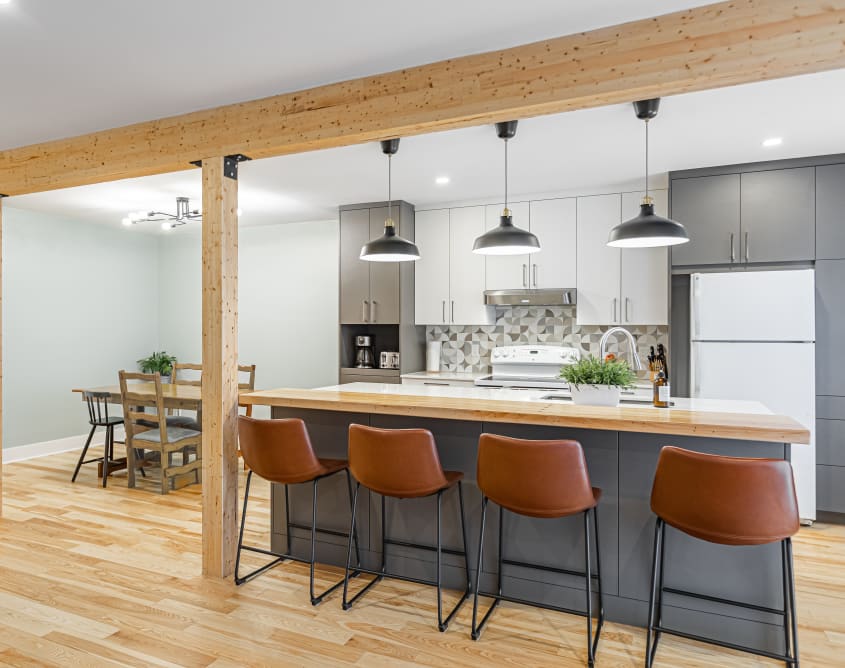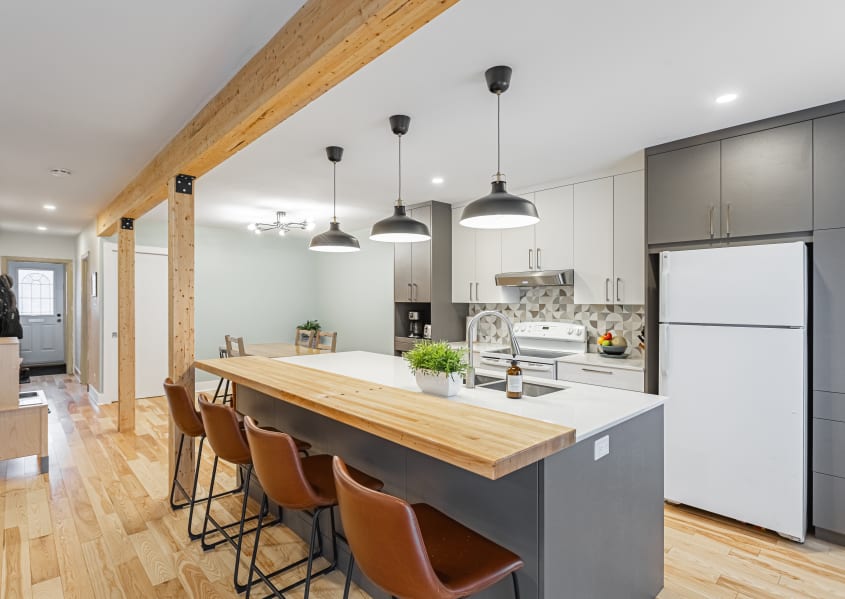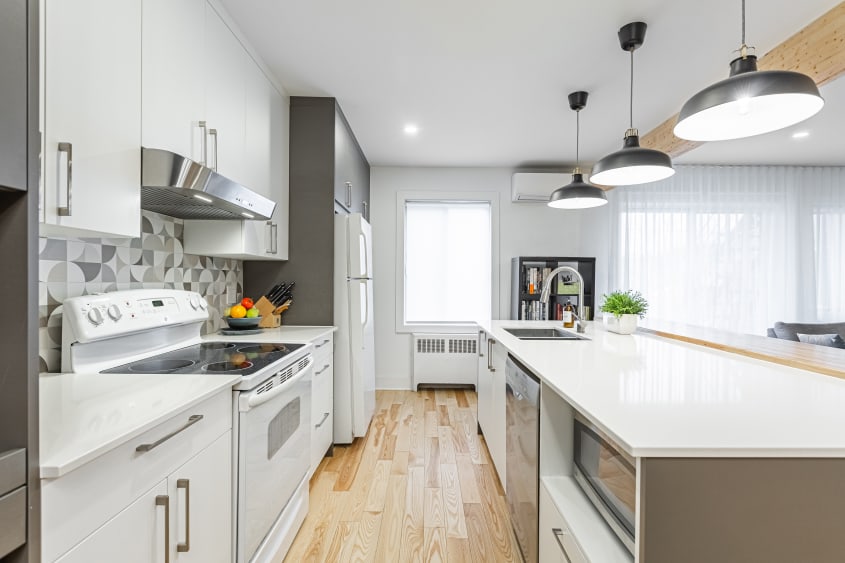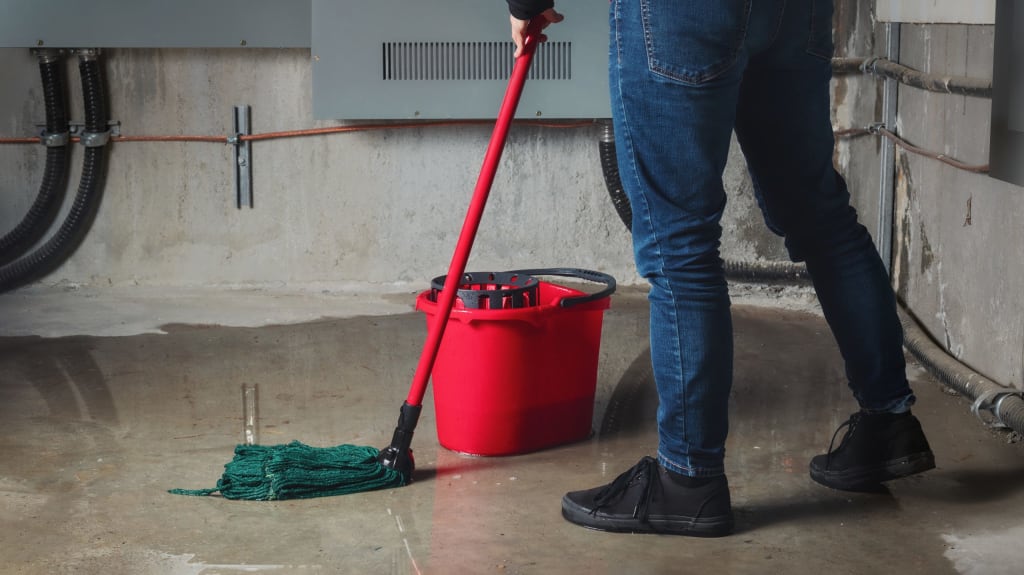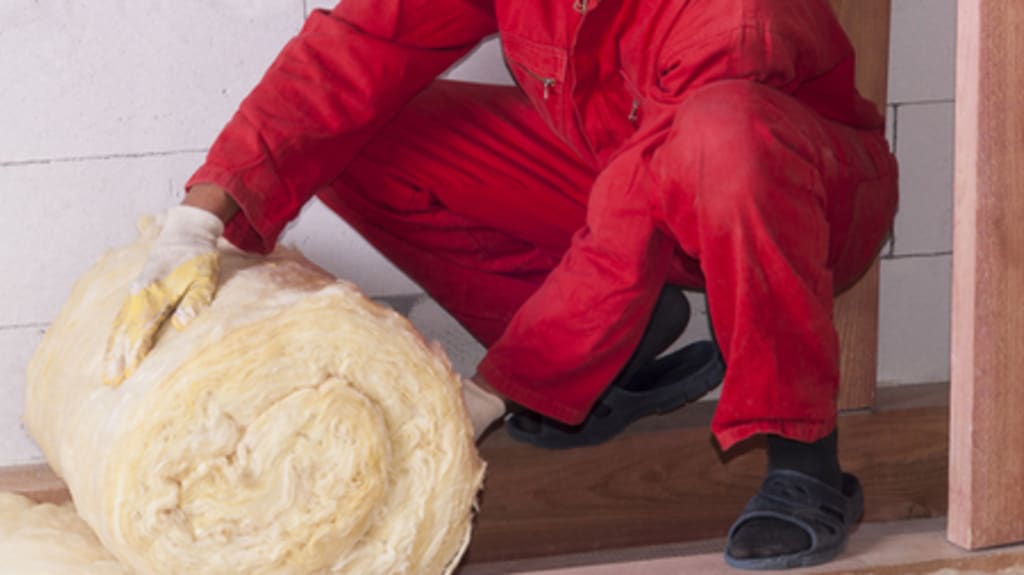Are you planning a full kitchen renovation, bathroom renovation, a basement remodel, or even an entire home addition? Choosing the right contractor for your home renovation project isn’t something you should take lightly. Here’s a handy list of questions to ask contractors prior to making your decision and signing on the dotted line!
Lack of skill, botched work, ridiculously long delays. We’ve all heard horror stories about renovations gone seriously wrong… and that’s why choosing the right contractor is no joke. Make the most informed decision you can by doing your due diligence. It may seem like a lot of work, but hard work is rewarded. By asking prospective contractors the following questions, you could save thousands of dollars down the road.
1. Do you have a licence?
A licence demonstrates that a governing body has determined that the contractor is qualified to do certain types of work. By asking this question, you’re ensuring you’re covered at least at a minimum level. Should the contractor try to leave the job site or take off with your deposit money, a licence gives you the benefit of being insured up to a certain amount.
In Quebec, the law requires all contractors to have an RBQ licence. In Ontario, this isn’t the case – contractors aren’t necessarily required to have a licence. However, Toronto contractors (those based out of the city of Toronto & planning to work there) must carry a Metro Licence.
REMEMBER: Some less-than-honest contractors will show you a licence number that actually belongs to another contractor. Be vigilant and check. Having a licence number printed on a quote or business card does not make it legitimate.
2. Do you have contractor liability insurance?
Imagine having to deal with fire or water damage to your or your neighbour’s property. What if a visitor or a passerby is injured by scaffolding or by falling into a hidden opening. Anything can happen on a job site. Make sure you ask to see an insurance certificate and don’t hesitate to contact the insurance company to verify its validity.
Many homeowners mistakenly believe that they are protected as long as they have liability insurance. In the home improvement realm, there is a lot of misinformation and sometimes it’s difficult to determine what’s true and what’s false.

3. What are you good at, and what negative comments might your clients have about you?
Some contractors will be very honest and tell you right off the bat that they, for example, do quality work but they’re not the cheapest, or that they do all the work themselves so they’re not the fastest. But, since most aren’t as forthcoming, it’s up to you to press them for answers. Be sure to check their references and read online customer reviews. In Ontario, complaints against a contractor can also be found through the Better Business Bureau.

4. How long have you been in business?
Repeatedly claiming bankruptcy and then opening up a new business under a different name the following day has become common practice in this industry. Maybe a contractor can be great with a hammer and saw, but not so great at managing their finances, with one potential outcome being that they’re out of money before they complete a project. This may seem extreme, but it happens way more than you think.
Check out the associated business registry (ServiceOntario for Ontario-based contractors or le Registraire des entreprises for Quebec-based contractors) to verify how long a contractor has been working. If they say they’ve been active for 20 years but their current business has been registered for only one, you may want to start asking some questions. And if you don’t like what you hear, move on.
5. Who are your main suppliers?
Ask where the contractor gets their supplies and how long they’ve been working with the vendors. If the contractor has been sourcing from the same places for a long time, they’re probably paying their suppliers. That’s a good thing. You may find out some additional information by going to the suppliers and asking questions.

6. Have you ever been sued?
This is perfectly valid question to ask, and it would be in your best interest to verify their response by checking with the courthouse (it’s on public record). You might find a blank file, or you may find a long list of lawsuits against them. You’d be surprised how often seemingly charming contractors have long histories of lawsuits.
7. Is it possible to see similar renovations you’ve completed?
The best way to judge the talent and skill of a contractor is to see their finished work. Some may have a portfolio of pictures of past projects – like kitchen or bathroom renovations, basement remodels, home additions, etc. – to show you, and you’d be wise to check them out. You can ask for real-life references and testimonials but make sure it’s not a family member or friend they’ve done work for. You want an unbiased opinion after all. When you speak to a former client, ask about things like punctuality, cleanliness, friendliness, and conflicts.
8. How long will the work take?
For projects with multiple stages, it is important to establish a detailed work schedule. Afterwards, it’s important to keep tabs on the project’s advancement to ensure everything goes according to plan. If there are any issues or delays, you’ll be able to speak with the contractor and see how you can make up for lost time and get back on schedule. Doing so is crucial, otherwise the whole project could be delayed. If you won’t be present on the work site every day, you’ll need to make sure you keep in touch with the contractor rather frequently to get updates on the work being done. Remember to negotiate the terms and conditions of your agreement if ever there are delays during the renovation process, especially if you’re on a strict schedule.
Keep in mind that it’s not always the contractor’s fault if your project takes longer than expected. For example, if you make changes during the renovation process, there’s a good chance that it’ll cause delays. Unexpected issues can also crop up, like carpenter ants in your walls or ceilings. So, it’s important to distinguish when a delay is caused by the contractor, the client, or unforeseen circumstances.
9. Under what circumstances could the price you quote me go up?
You should absolutely ask your contractor in advance if they foresee any circumstances that could increase the cost of the renovation, as it’s better to be aware of this from the start. Many untrustworthy contractors will hook you with a low price, then nail you with extra charges and threaten a lawsuit if you don’t pay up.
10. Who will be my point of contact?
Will the person you sign the contract with be your main contact throughout the job? If not, who will? It is best to have one main point of contact to avoid any potential miscommunications that could lead to mistakes.

11. Who is ultimately responsible for the work?
A general contractor may use subcontractors to complete the work. The contractor can also have members of their crew show up to your house. It’s possible that a crew member and an apprentice show up instead of the contractor you signed an agreement with. Sometimes, this isn’t a problem at all. Other times, it can be an issue, especially if you chose a contractor for their particular skillset and they hire a cheaper, less skilled substitute to do the job without informing you. Just when you thought you were working with contractor X, contractor Y (who costs less and is less experienced) is working on your home. Know who to talk to if you’re not happy.
12. Will there be a written contract?
A written contract is essential and should include a description of the work and materials, penalties for delays, costs, and more. The more specific it is, the better. Too many people sign contracts that are incomplete, or blindly offer up trust when presented with what seems to be a good deal. If a price seems too good to be true, it usually is. Double check what you’re agreeing to and get everything – we mean everything – in writing. If the contractor doesn’t put everything on the page, don’t sign it. «Complete bathroom renovation : $15,000» is not enough information!
In the event that you need to enforce the penalty clause, your relationship with your contractor may turn sour. That’s another reason to choose the right contractor from the start.

13. How does payment work?
Besides signing a detailed agreement, be sure to put together a detailed payment schedule and understand its terms. The first payment you’ll make will undoubtedly be the deposit, which is often 15% of the total cost of your renovation. We suggest you provide the contractor with this sum as close as possible to your project’s start date. During the renovation process, do your best to only pay for work that has been completed and nothing more. By doing so, you won’t pay for the entire project before it’s complete and avoid the risk of your contractor finishing up quickly and deserting the work site. If ever you begin payment over 2 months before the project’s start date, make sure your contractor has a trust account and make sure that you write your cheque to «CONTRACTOR NAME in trust».
14. How will I know that all subcontractors have been paid?
Note that your general contractor is likely to hire subcontractors and your home can be used as collateral if they don’t pay them. That means you might even pay for the work twice without being aware of it. But, how will you know if the contractor properly paid all the subcontractors he has hired?
Every time a subcontractor is hired, you should receive a notice of disclosure. It’s important you save these notices as they’re proof that part of the work was subcontracted to a third party. You can also ask this third party for a copy of their invoice so that you have proof the general contractor paid them. If you plan on writing a cheque for supplies like windows and doors, make sure you put the contractor’s name on it along with the supplier. There are lots of things you can do to avoid paying extra for a renovation project!
15. How will the job wrap up?
The contract should include debris disposal. Sometimes contractors who are running behind on a project will do 90% of the work well and then disappear to start working at another site before your project is complete. If there is a penalty involved and/or set definition of what the completed work should look like that both parties have agreed to, you’ll be more likely to see things wrap up quickly and painlessly.
Keep in mind that if a penalty needs to be applied, it can put a strain on your relationship with the contractor.

16. What warranties do you offer on the work being done?
Depending on the kind of work you get done, warranties can vary greatly from one contractor to the next. It’s also important to understand the difference between warranty for labour and for materials. A roof with a 30 year warranty won’t necessarily be repaired for free if it starts leaking in year 25. Material coverage is typically prorated and labour costs will need to be covered by the homeowners. So, you’ll need to ask them what their warranty covers.
Note that the warranty is only valid as long as the company still exists. In other words, if the contractor’s company goes bankrupt, the warranty is no longer valid. Make sure the contractor provides you with a bond from their insuring company or a renovation warranty plan.
CAUTION: Some contractors declare bankruptcy and open a new company under a different legal name. This is why it’s important to ask contractors how long they’ve been in business. Being cautious never hurt anybody!
Do you want to minimize risk and save time?
RenoAssistance has already vetted thousands of contractors for you. We only put you in touch with Verified Contractors, and we’ll send you a Verification Report with everything you need to know about them before your initial meeting.

Benefit from a white glove service thanks to our dedicated Advisors
Our Renovation Advisors will be with you every step of the way, helping with everything from comparing the quotes you receive to project completion, so you can make an informed decision.
A Renovation Guarantee for peace of mind
With RenoAssistance, not only do we support you throughout your project but we also guarantee our contractors’ work if you live in Quebec. This guarantee protects your deposit, ensures project completion, and covers hidden defects. For more information, check out our Renovation Guarantee.

